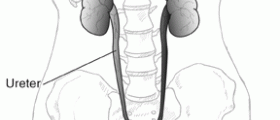
Kidneys perform a multitude of functions that are vital to our body’s health. They are responsible for urine production, waste disposal, blood filtration and the reduction of bodily toxins. Kidneys are also vital with regard to the controlling of blood pressure. Acute kidney failure is the cause of about 5% of hospital admittances. Chronic kidney failure occurs gradually over time, whereas acute kidney occurs more rapidly.
Types of kidney failure
Kidney failure can be categorized in three ways: prerenal, renal and postrenal. Prerenal refers to problems that occur in the blood flow prior to arrival in the kidneys, postrenal problems affect urine after it leaves the kidneys and renal problems refer to problems with the kidney itself.Prerenal
Prerenal failure accounts for about 60-70% of all kidney failure cases. Problems in this area occur due to dehydration, disruption of blood flow to the kidneys, sudden drops in blood pressure, blockage of blood vessels that carry blood to the kidneys, heart failure and liver failure. With proper attention, prerenal failure can usually be solved and damage can be reversed.
Renal
Primary renal failure is often the most complicated cause of kidney failure. Conditions that directly affect the kidney include those that interfere with the filtering abilities of the kidney, the blood supply within the kidney and the kidney tissue. Blood clots, glomerulonephritis, tissue or cell injury, blood vessel diseases, acute tubular necrosis and acute interstitial nephritis are all potential causes of primary renal failure.
Glomerulonephritis treatment usually consists of medication, or dialysis, should the condition worsen. Acute interstitial nephritis is caused by inflammation to the kidney tissue that handles salt and water balance. This can be caused by negative reactions to medication such as NSAIDs, antiobiotics and diuretics. Treatment for this condition normally requires the elimination of intake of the offending medications, or, should kidney function have deteriorated significantly, dialysis.
The main cause of primary renal failure is, however, acute tubular necrosis. This refers to damage to the kidney tubules. These tubules handle much of the filtering functions of the kidney. Symptoms include lethargy, nausea, vomiting, abdominal discomfort and rash. It may also be asymptomatic. Treatment will vary depending on the cause, and will usually take the form of offensive medication reduction, the replenishment of bodily fluids and improving renal blood flow. If conditions do not improve, dialysis and even transplant might be required.Postrenal
Postrenal failure is quite rare, and is normally reversible. This kind of kidney failure can be caused by kidney stones, urinary tract cancer or bladder cancer, medications, bladder stones, blood clots and neurologic disorders that affect the bladder. Postrenal failure is often caused by some kind of obstruction that blocks urinal excretion; thus, treatment usually concentrates on removing such an obstruction.

















Your thoughts on this
Loading...